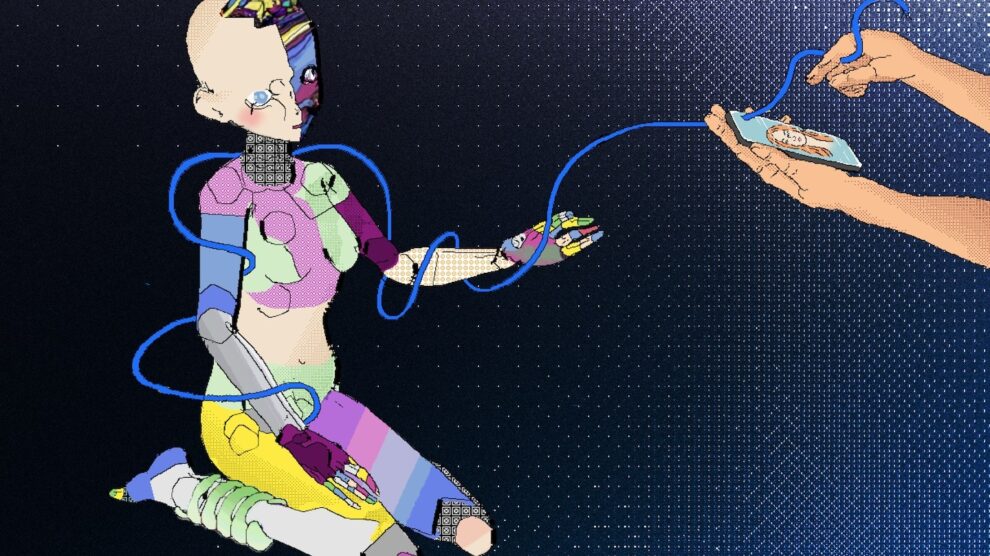AI Friendships Claim to Cure Loneliness, but Some End Tragically in Suicide, with the promise of easing loneliness being shadowed by darker realities. AI friendships, often marketed as a solution for social isolation, are now being scrutinized as cases of individuals experiencing severe emotional distress, and even taking their own lives, have come to light. While these AI systems are designed to simulate meaningful connections, their emotional impact and the ethics surrounding their development raise serious concerns.

Artificial intelligence systems such as chatbots, virtual companions, and digital assistants have become increasingly sophisticated in replicating human-like interactions. For many users, these AI-driven tools provide a semblance of intimacy and understanding that they struggle to find elsewhere. However, as dependency grows, the emotional void that these technologies attempt to fill can sometimes deepen when they fail to meet human expectations.
The Growing Appeal of AI Companionship
Loneliness has been recognized as a public health crisis in recent years, exacerbated by social and technological changes that have altered the way people interact. AI companionship emerged as a response, offering users personalized interactions that can simulate friendship. These systems often employ advanced algorithms to learn about their users, responding in ways that feel authentic and empathetic.
For some individuals, especially those who are socially isolated or facing mental health challenges, these AI companions provide a lifeline. Users often describe their interactions as deeply personal, with the AI becoming a confidant that offers non-judgmental support. The ease of availability and constant presence of AI companions have contributed to their appeal, particularly among younger demographics.
The Ethical Challenges and Emotional Risks
While the benefits of AI friendships are evident for many, the emotional risks associated with them are significant. Unlike human relationships, AI interactions are limited by their programming, which can lead to misunderstandings or unmet expectations. When users form attachments to these virtual entities, the boundaries between simulated and genuine emotions blur, sometimes leading to devastating consequences.
One of the most concerning aspects is the potential for users to feel abandoned or rejected when their AI companion fails to respond in a way they hoped. This emotional dissonance can be especially harmful for individuals who are already vulnerable. Reports of users experiencing intense distress after losing access to an AI companion highlight the dangers of over-reliance on these systems. In extreme cases, this distress has culminated in tragedy, with some individuals taking their own lives after their AI connection was severed or failed them.
Cases That Highlight the Darker Side
Several high-profile incidents have brought the risks of AI friendships into sharp focus. In some cases, individuals have formed deep attachments to their AI companions, only to face emotional turmoil when these relationships falter. For instance, the discontinuation of certain AI chatbots or the inability of these systems to adapt to the user’s increasing emotional needs have left some users feeling abandoned.
One tragic case involved an individual who became dependent on an AI chatbot for emotional support. When the service was unexpectedly altered, the individual experienced profound distress, leading to a tragic outcome. These stories underscore the ethical responsibility of developers to consider the psychological impact of their technologies.
The Role of Developers and Policymakers
The companies behind AI companionship platforms face mounting pressure to address the unintended consequences of their creations. While these tools are often marketed as harmless entertainment or wellness aids, their psychological impact is profound enough to warrant stricter oversight. Developers are being urged to include safeguards that prioritize user well-being, such as built-in alerts for signs of dependency or mental health risks.
Policymakers also have a critical role to play in regulating these technologies. Guidelines that require transparency in AI interactions, ethical standards for emotional engagement, and support for users in distress are essential to prevent further tragedies. Balancing innovation with ethical considerations is a challenge that requires collaboration between tech companies, mental health professionals, and regulatory bodies.
Exploring Solutions – The Intersection of AI and Mental Health
As AI companionship becomes more integrated into daily life, the focus is shifting toward creating systems that support mental health rather than inadvertently harm it. This includes incorporating features such as mental health check-ins, referrals to human counselors, and settings that limit prolonged dependency. Educating users about the limitations of AI companionship is equally important in ensuring that these tools are used as a complement to, rather than a replacement for, human connections.
Moreover, the introduction of ethical design principles is vital in mitigating risks. Developers must consider not only how their AI systems simulate relationships but also how they terminate or transition them. Ensuring a humane and supportive exit strategy for users who need to disengage from AI companions can significantly reduce emotional harm.
The Larger Conversation About Loneliness and Technology
The phenomenon of AI friendships sheds light on a broader societal issue: the growing reliance on technology to address human needs. While these tools can provide temporary relief, they are not a substitute for meaningful human relationships. Addressing the root causes of loneliness requires a multifaceted approach that includes fostering community connections, improving mental health resources, and encouraging genuine social interactions.
In the context of AI companionship, it’s crucial to approach the technology with both optimism and caution. While it offers a unique solution to a pervasive problem, its limitations and risks must be acknowledged. The stories of those who have suffered highlight the urgent need for ethical safeguards and a deeper understanding of the emotional complexities at play.
A Call for Responsible Innovation
AI friendships represent a double-edged sword in the fight against loneliness. On one hand, they offer a new way to connect in an increasingly isolated world. On the other, they expose users to emotional risks that can have serious consequences. As you navigate this evolving landscape, it’s important to demand accountability from developers and policymakers while fostering awareness about the responsible use of AI companionship. Only by addressing these challenges can the promise of AI be fully realized without compromising the well-being of those who turn to it in their moments of need.










Add Comment